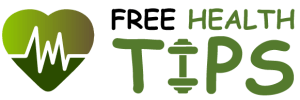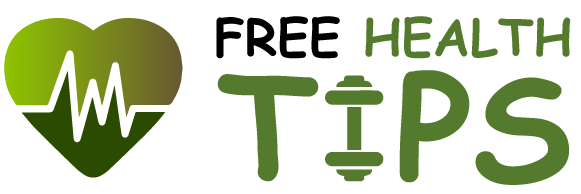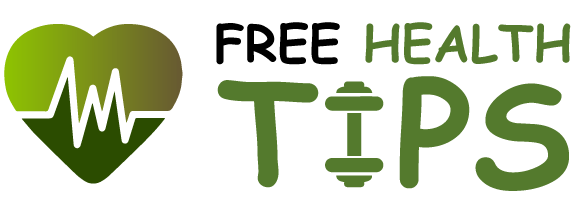Over-the-counter (OTC) medications provide a readily available tool for managing everyday aches, pains, and ailments. They offer a convenient and seemingly straightforward solution, from the classic cough syrup to the ubiquitous pain reliever.
According to Mordor Intelligence, the OTC drugs market is anticipated to reach a valuation of USD 163.10 billion by 2029. Projections indicate a compound annual growth rate (CAGR) of 3.49% from 2024 to 2029.
Various factors, including the global impact of the COVID-19 pandemic on healthcare systems, influence this growth trajectory. The rising costs of prescription (Rx) drugs have also contributed to a shift towards these medications. Moreover, the increasing approvals of OTC drugs have expanded consumer access to a wide range of remedies for addressing common ailments.
However, the rising popularity of OTC medications also brings forth the potential for misuse and errors in their administration.
This article uncovers the six most frequent missteps in the use of OCTs and equips you with the knowledge to navigate them confidently.
1. Lack of Awareness About the Medication
Many individuals lack comprehensive awareness of the active ingredients, potential side effects, and proper usage of OTC medications. This can lead to inadvertent mistakes with serious consequences.
National Institutes of Health (NIH) reveals concerning gaps in knowledge among university students regarding OTC medicine use. This lack of awareness increases the risk of adverse side effects, drug interactions, and overdose.
For instance, data indicates that young adults are particularly vulnerable to harm related to the use of paracetamol. There has been a significant increase in cases of paracetamol toxicity recorded in recent years. The widespread use of paracetamol in overdoses has contributed to a sharp rise in acute liver toxicity cases.
These instances underscore the need for improved awareness regarding OTC medication safety.
2. Combining OTCs Without Consulting a Healthcare Provider
Combining OTC medications can pose significant risks to one’s health. Even seemingly harmless medications can interact with each other, prescription drugs, or herbal supplements, leading to adverse reactions or reduced effectiveness.
Additionally, certain ingredients may be present in multiple OTC medications and can lead to unintentional overdosing if taken in excess.
According to the University of Findlay, consulting a pharmacist before combining any over-the-counter medications, especially with prescription drugs, is crucial. Pharmacists can review your medications, identify potential interactions, and recommend safer alternatives.
For aspiring pharmacists, pursuing a Doctor of Pharmacy (PharmD) program offers a pathway to enter the profession. The PharmD online program offers individuals a flexible and convenient way to obtain their degree. These programs are designed to equip students with the comprehensive knowledge and skills necessary to become medication experts.
Through online coursework and virtual learning platforms, students learn to navigate various aspects of pharmacy practice, including over-the-counter medication use. The flexibility of online learning allows students to balance their education with other commitments while gaining expertise in pharmaceutical care.
3. Self-Diagnosing and Overusing OTCs
Relying on self-diagnosis for serious illnesses and using OTCs as substitutes for professional medical advice can exacerbate underlying conditions. It’s essential to recognize the limitations of these drugs and seek medical attention for persistent symptoms.
Overuse of OTC medications can also lead to dependence. For instance, according to BuzzFeed News, prolonged use of pain relievers for headaches can result in rebound headaches. Similarly, dependency on decongestant eye drops for reducing eye redness can worsen the condition over time, creating a cycle of dependency.
Furthermore, OTC cortisone creams, while effective for treating skin conditions like rashes and eczema, can lead to “red skin syndrome” upon cessation of use. This condition is characterized by withdrawal symptoms such as bright red skin, burning, and itching.
Also Read: Get Ready to Glow: The Unbelievable Skin Benefits of Cloves Revealed
These risks underscore the importance of using OTC drugs judiciously and seeking professional medical advice when necessary to avoid potential complications.
4. Ignoring Storage and Expiration Dates
Improper storage, such as exposure to heat, humidity, or direct sunlight, can degrade the active ingredients in medications, reducing their effectiveness. It’s crucial to store OTC medications in cool, dry places to maintain their stability and ensure optimal potency.
Checking expiration dates is equally important, as expired medications may not only be less effective but also potentially harmful. Expired medications can undergo chemical changes that render them less potent or even toxic. Therefore, it’s essential to discard expired medications responsibly, following guidelines for safe disposal to prevent accidental ingestion or environmental contamination.
5. Herbal and Dietary Supplement Risks
While herbal and dietary supplements are often perceived as safe, this is a common misconception that can lead to significant health risks. Unlike prescription medications, herbal and dietary supplements are not regulated rigorously by health authorities. This can lead to variations in quality and potency among products.
Additionally, many supplements can interact with OTC medications or prescription drugs, potentially altering their effectiveness or causing adverse reactions. Individuals need to recognize the potential risks associated with these products. Additionally, they need to consult with a healthcare professional before adding them to their regimen, especially if they are already taking other medications.
6. Delaying Professional Advice
While OTC remedies may provide temporary relief for minor ailments, they are not always sufficient for addressing underlying health issues. Ignoring persistent or worsening symptoms may allow a condition to progress unchecked, potentially leading to complications.
Seeking timely medical advice from a healthcare professional is crucial for accurate diagnosis and appropriate management of health concerns. Healthcare providers can conduct thorough evaluations, order diagnostic tests if necessary, and prescribe medications or treatments tailored to individual needs.
In conclusion, OTC medications hold immense potential to manage everyday ailments, but navigating their world requires knowledge and caution. We’ve explored common pitfalls, emphasizing the importance of understanding dosages, avoiding interactions, and storing medications correctly.
Remember, OTCs are not magic bullets. If symptoms persist, worsen, or raise concerns, seeking professional medical advice is paramount. Trust your body, listen to the red flags, and don’t hesitate to prioritize your health by consulting a healthcare provider.
Ultimately, taking an informed and responsible approach to their use empowers you to manage your well-being effectively. Armed with the knowledge outlined in this article, you can transform your medicine cabinet into a tool for a healthier, empowered you. So, step forth confidently, navigate the OTC maze with wisdom, and embrace the journey toward a healthier future.


